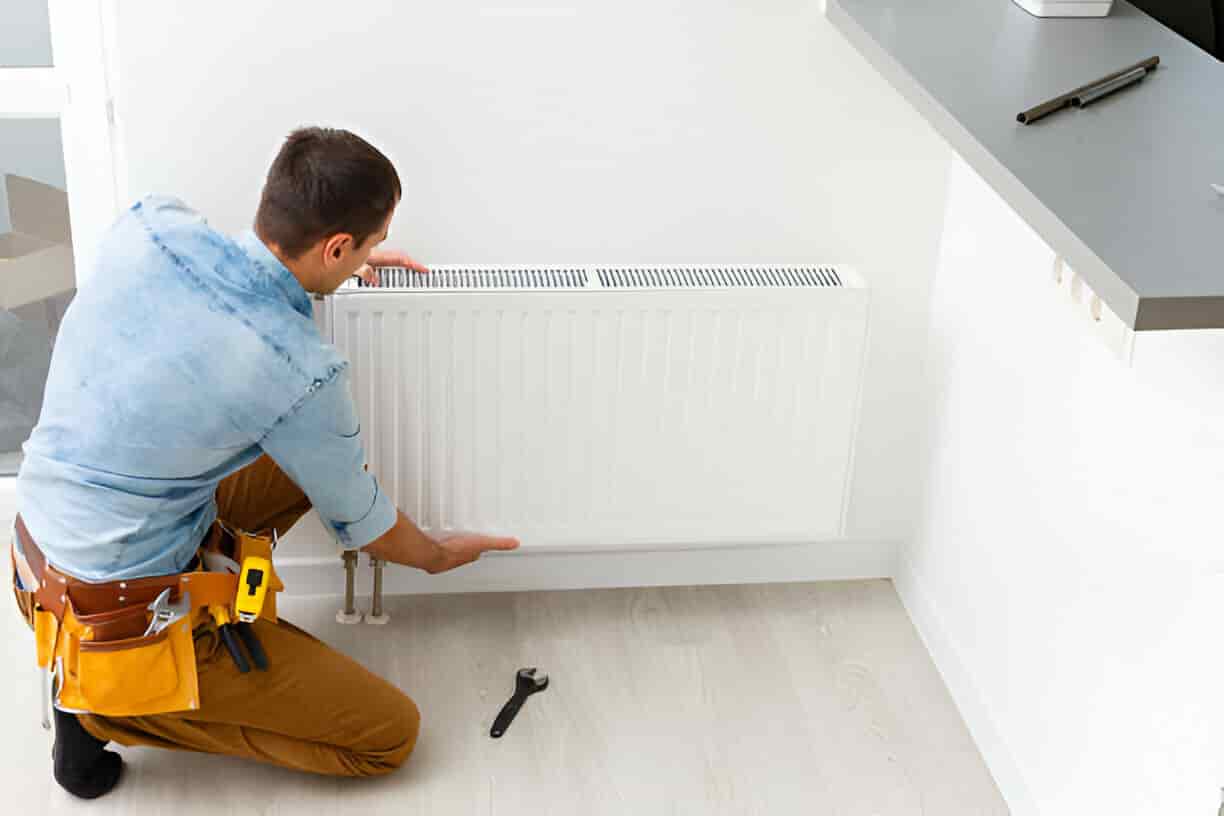Heating Tune-Up in Fairmount, KS
Heating tune-up service for Fairmount, KS homes is outlined here, highlighting benefits of regular inspection, cleaning, and safety checks that improve efficiency, reduce mid-winter breakdowns, and lower emergency repair costs. The guide covers a detailed checklist, common issues found, expected visit duration, and recommended maintenance frequency. It also explains memberships, pricing considerations, and what to expect during service, emphasizing how timely maintenance protects comfort and extends furnace or heat pump life. Learn more about scheduling and member benefits.
Heating Tune-Up in Fairmount, KS
A seasonal heating tune-up in Fairmount, KS is one of the most cost effective things you can schedule to protect your home, improve comfort, and reduce the chance of mid-winter breakdowns. With cold Kansas winters, temperature swings, and dust from open fields, heating systems here face stresses that make an annual professional inspection and cleaning essential. This page explains what a full heating tune-up includes, common problems we find in Fairmount homes, how tune-ups help performance and safety, and how often you should schedule service.
Why a heating tune-up matters in Fairmount, KS
Fairmount and the surrounding Leavenworth County area see freezing nights, heavy humidity swings, and seasonal dust and pollen. Those conditions contribute to:
- Reduced airflow from dusty filters and ducts
- Corrosion or sooting on burners and heat exchangers in older furnaces
- Increased cycling and wear during prolonged cold snaps
- Higher carbon monoxide risk when combustion components are dirty or misadjusted
A professional tune-up restores safe operation, improves efficiency, and lowers the likelihood of an emergency repair on the coldest days.
Typical tune-up checklist
A thorough heating tune-up addresses both performance and safety. Standard items included are:
- Visual system inspection: Check cabinet, panels, visible wiring, and mounting for signs of wear or damage
- Cleaning burners and heat exchanger: Remove soot, debris, and corrosion that reduce combustion efficiency
- Ignition and pilot system checks: Test electronic ignitors or pilots for reliable starts and safe operation
- Combustion analysis and CO check: Measure combustion efficiency and check for dangerous carbon monoxide levels when servicing gas-fired equipment
- Filter inspection and recommendations: Inspect and advise on filter condition and replacement frequency; replace if included in membership
- Blower motor and wheel cleaning: Remove dust that reduces airflow and forces the system to work harder
- Airflow and duct check: Inspect ductwork for leaks, disconnected runs, and restricted vents that reduce heat delivery
- Thermostat calibration: Verify thermostat accuracy and control settings to prevent short cycling and uneven heating
- Safety controls testing: Confirm high limit switches, pressure switches, and other safety devices operate properly
- Electrical connections and voltage check: Tighten terminals and measure motor voltage and amperage to detect failing components
- Lubrication and moving parts: Lubricate bearings and other components where applicable
- System performance test: Run the system through a full cycle to verify heat rise, proper cycling, and stable operation
Common heating issues in Fairmount homes
During tune-ups, technicians frequently discover issues that, if left unattended, lead to failures or unsafe conditions:
- Clogged or old filters causing restricted airflow and frozen coils on heat pumps
- Dirty burners or sooted heat exchangers that reduce efficiency and can mask cracks or leaks
- Worn blower motors or bearings producing noise and uneven heating
- Thermostats out of calibration causing short cycling and wasted energy
- Leaky or poorly insulated duct runs in attics and crawlspaces that waste heat in older Fairmount homes
- Corroded ignition components or failing limit switches that cause intermittent outages
Addressing these early prevents breakdowns during cold spells and reduces repair costs over time.
How tune-ups improve efficiency and extend equipment life
A properly performed tune-up can restore lost efficiency and reduce the strain on your heating equipment:
- Cleaner burners and coils burn fuel more completely, improving fuel-to-heat conversion
- Proper airflow and sealed ducts reduce run time and even out temperatures, lowering energy use
- Tight electrical connections and lubricated motors reduce mechanical stress and overheating
- Early detection of failing components avoids collateral damage that shortens overall system life
Regular maintenance is typically one of the single best investments to extend a furnace or heat pump life by several years while maintaining more consistent comfort.
Recommended frequency
- Annual tune-up before heating season: Schedule once every 12 months, ideally in early fall so your system is ready before the first cold snap.
- High-use or older systems: Consider twice-yearly checks if equipment is over 15 years old or if you rely on the system heavily through long winters.
- Heat pumps: Best inspected at least once per year, with a focus on refrigerant charge and reversing valve operation.
What to expect during the service visit
A typical tune-up visit in Fairmount takes 45 to 90 minutes depending on system type and condition. You should expect:
- A clear checklist of items inspected and serviced
- A written summary of findings and recommended repairs or improvements
- Explanation of any safety concerns and which items are critical to address immediately
- Guidance on filters, thermostat settings, and simple homeowner maintenance to keep the system running efficiently
Technicians will work to minimize disruption and leave the equipment and work area clean.
Memberships, discounts, and long-term value
Many homeowners find that maintenance memberships or seasonal tune-up plans provide the best value. Memberships often include priority scheduling, discounted service rates, and routine filter changes. While specific pricing varies, the long-term value is realized through fewer emergency repairs, better fuel or electricity savings, and extended equipment life.
Risks of skipping tune-ups
Skipping annual maintenance increases the chance of:
- Unexpected failures on the coldest days
- Higher utility bills from inefficient operation
- Unsafe conditions such as carbon monoxide leaks or fire risk from electrical faults
- Reduced equipment lifespan and premature replacement costs
A modest investment in a professional tune-up reduces these risks and helps maintain a safe, comfortable home.
Given Fairmounts seasonal dust, humidity swings, and cold winters, an annual heating tune-up is a practical, safety-first step to protect your home and family. Regular maintenance keeps systems running reliably when you need them most, improves efficiency, and identifies small issues before they become major repairs. Scheduling your tune-up before the heating season ensures peak performance through the winter months and helps you avoid the inconvenience of mid-winter breakdowns.









